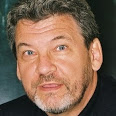Archive
PR Interview with Jeff Domansky – The Coach
No doubt that when I get the opportunity to build my PR All Star team, this guy will be The Coach. An accomplished PR professional and author of PRoactive: The Public Relations Job Hunter’s Guide, he is probably best known by most of us as ThePRCoach online.
While I’ve been fortunate to get to know Jeff a bit over the last couple of years, if it wasn’t for this Q&A project, I never would have learned that he built his own cedar strip canoe and survived a near fatal spinal injury when surfing in Hawaii. Every coach has a story. To learn more, please enjoy the following interview with Jeff Domansky for episode 007.
Jeff, you’ve been running The PR Coach site (one of my favs) as blogger, editor and publisher for the last couple of years and you’ve been CEO of Peak Communications for 18 years, how do you balance the two?
Balancing your work, family and online presence is always a challenge as you know Paul. I’m very disciplined about when and how I spend my social media time. On the PR/social media client consulting side you’re at the disposal of your clients. If your client has a crisis or a social media or marketing challenge, it’s your challenge too.
 How much time do you put to these two positions?
How much time do you put to these two positions?
I spend about two to three hours a day on social media and another couple of hours a week writing blog posts. I’ve developed a couple of unique ways to save time researching, reading and posting. Stay tuned.
In other words, dude, do you ever sleep?
Sleep does not compute, LOL.
You are one of the best PR bloggers out there and your work is always well read and widely circulated on social media, so who are some of your favorite PR bloggers?
Apart from the 230+ PR bloggers in my PR Library? I have a few that I keep a close eye on: Jay Baer (Convince & Convert); Brad Phillips (Mr Media Training); Deirdre Breakenridge; Kevin Dugan & Richard Laermer (Bad Pitch Blog); Jeff Esposito; Lou Hoffman (Ishmael’s Corner); Heather Yaxley, etc. (PR Conversations)
Have you ever written a blog that you thought was one of you best pieces only to see it not get the attention or reaction that you expected? If so, which one(s)?
I have two favorite posts that never jumped for some mysterious reason: Will That Be Value or Values with Your PR? and Public Relations: Great or Gone in 7 Seconds?. Oddly enough they were two of the easy ones to write. On the flip side, who can explain the huge traffic I still get for Bad News Releases: 25 Press Release Turkeys? Truth really is stranger than fiction.
What is the story behind the “The Coach” handle?
The PR Coach persona really fits me well. When I’ve run agencies in the past, what I enjoyed the most was PR counsel for clients and young PR pros. I’ve had several terrific mentors in my career and I’ve always believed in paying it back and forward by doing the same.
 How do you explain your job to friends and family?
How do you explain your job to friends and family?
Well, I certainly don’t use PRSA’s definition of PR. Depends who I’m talking to. If it’s my mother-in-law, I say it’s “sorta like advertising without the ads.” These days, it would be meaningful to talk about public relations in terms of “social PR.” Maybe creating and managing communication with key individuals and communities would capture it?
If you could do anything outside of PR / Communications, what would you choose and why?
I’d be an English professor. I originally started university in pre-law but after one year switched to English and history. I was partway through my masters degree when I decided to take a year off work. I got a job as an ad copywriter, moved into PR after several years and never looked back. How cool is it to get paid for writing and ideas?
How did you get into public relations?
My first PR experience was in nonprofit. I learned to do everything with nothing and to not be shy about asking anyone for advice, including the media. I spent several great years in government public affairs but the majority of my career has been in PR agencies.
If you could change one thing about the PR industry, what would it be?
I wish we could get out of the media relations “straitjacket.” I hate it when clients think every solution is media coverage. What’s up with that?
What does PR/Comms industry look like in 5 years?
In five years, our role will still be very similar to what it is today. That is, providing communication solutions regardless of the shiny new tools of the day, the challenges of people or organizations or the shifting media platforms.
Do you make any attempt to differentiate you personal from your professional social media persona? If so, how?
No. My PR Coach persona is very true to my own personality. Be smart, be well read, write well, be a leader and share.
The best PR / Communications people you’ve ever worked with share what quality?
Prolific readers and writers, quick studies, steady under pressure and obsessively curious.
What is the the last PR / Comms book you’ve read and would you recommend it?
Two recent favorites; both highly recommended. Paul Smith’s Lead with a Story and Content Strategy for the Web by Kristina Halverson. If you’re curious about business storytelling, Smith’s book is a must-read.
What advice would you give young professionals just starting out in this industry?
My advice mirrors those PR pro qualities I mentioned earlier with a couple of tweaks. Be a prolific reader and writer. Be obsessively curious about social media and new technology. Learn how business works and how to read and interpret financials. Find a mentor and always share. Marketing is not a bad word except when it’s used in PR.
Do you subscribe to any print publications (newspaper or magazines)?
In the past two years, I’ve cut back to just my daily newspaper, a couple of business publications and two lifestyle mags. I read everything else online including traditional media like The New York Times, CNN, Economist to online media like Forbes, Huffington Post, Gawker and Buzz Feed. I also monitor a pretty active RSS feed with more than 350 media and blogs. Of course there it’s headline scanning.
Have you ever deleted a Tweet / post? If so, why?
Nope. Live or die by your comments.
If you were interviewing yourself, what would you ask and how would you answer?
Q: Where did you get that warped sense of humor?
A: I was the kid with the smart mouth in English class. Fortunately, my teachers got the jokes and liked my writing. They also fostered my love of reading anything and everything.
Immediate reaction to the following (in one or two words preferably):
Twitter: essential
Facebook: Farcebook
Google+: some day
Klout: relevant yet?
Corporate blogs: critical
LinkedIn: necessary, evolving
Pintrest: possibilities
Social media: need for speed
Public relations: = social PR
Still need more of Jeff? Check out:
Twitter: http://twitter.com/ThePRCoach
LinkedIn: http://ca.linkedin.com/in/jeffdomansky
Blog: http://www.theprcoach.com/pr-blog
Curation: http://www.scoop.it/t/public-relations-insight
If you like this interview, please also check out recent interviews with Jeff Beauregard, Jules Zunich, Frank Strong, Krista Giuffi and Lisa Zone.
Q&A image courtesy of Stuart Miles / FreeDigitalPhotos.net
PR Interview with Jayme Soulati
For those professionals still wondering if blogging and being active in social media is worth the effort, I’d point to this interview as my personal proof point. This Q&A project and my participation in social media, is the reason I’ve been fortunate enough to meet some really smart and talented professionals like Jayme Soulati.
President of Soulati Media, Jayme Soulati is an 18-year veteran of Chicago’s PR firms and a three-time entrepreneur – Soulati Media Relations, Marketing Media & More, Soulati Media. She is the past President, Publicity Club of Chicago and very smart.
Hope you enjoy getting to know Jayme who was kind enough to provide some valuable and always unique insight for episode 006.
Jayme, you’re currently the president of your own consultancy, did you have to know someone to get that job? Seriously, how do you compare running your own biz to working in the PR trenches for someone else?
As I am an agency brat from Chicago, which means I got my start in Chicago’s competitive agencies and bounced around to the next highest-paying job (I launched my career at Manning, Selvage & Lee making $13,500 per year), I am a strong advocate to stay “in” as long as humanly possible. 
What that means is – everyone starting out in this profession has to learn from others. Find a mentor who is a solid business strategist to glom onto and when that fizzles find someone else.
When you finally realize you’re getting into more trouble inside, take yourself out the door (as I did) and sow some oats and see how that feels. There’s a bonus most PR people probably don’t realize, and it’s this – every single company needs someone with our expertise to go to market, get talked about and to grow. Knowing that principle and letting it guide you is like a peace of mind; you can grow your own business keeping that close to the vest.
Did I answer that question? Hmm, I don’t think so!
Running my own business is like nothing you can plan for. Folks always thought I sat in my pjs at work; nonsense. You dress the way you want to feel; pjs and sweat pants make you lazy.
There are no breaks or holidays without connectivity; the work-life balance always suffers. However, the rewards are like nothing you can imagine.
If you could do anything outside of PR / Communications, what would you choose and why?
I’d be a gemologist, hands down. It’s been a hobby of mine…traveling to gem markets of the world to add another bauble to my collection. Some people collect stamps or guns, I collect colored gems…doesn’t that make sense? Heh. It’s all about color for me; color makes me happy.
How did you get into public relations?
When I was a junior at the University of Wisconsin—Madison, I had no major, so I started reading the curriculum directory and happened upon a public relations course in the J School. Turns out, I had been taking courses from anthropology to zoology trying to land on something that fit and got an amazing introduction to a variety of vertical markets which became a great segue into public relations. Wish I had consulted advisors during college to help direct me, but the unconventional route I took turned into the five-year plan I self-financed.
 Your blog is crazy good and popular. What are the top 5 tips you’d give to bloggers just starting out.
Your blog is crazy good and popular. What are the top 5 tips you’d give to bloggers just starting out.
- Find your voice with continuous writing and stick your neck out!
- Develop a thick skin and don’t let sensitivities prevail.
- Never focus on yourself; nurture and welcome people who visit and they will become your community.
- Guest post and comment on other blogs a lot.
- Keep the arrogance to a minimum; it’s terribly boring.
How much time do you spend on your blog during a normal week?
Tough question; blogging is an every-day occurrence so I’d say average is 2-3 hours a day writing a post, preparing it for publication, commenting on comments, marketing the post, and monitoring it. So…that’s about 10-15 hours weekly (depending on how frequently you post). (This is kind of a hard question because I never stop looking for content ideas; everything I read, everyone I speak with provides fodder for content.)
What does PR/Comms industry look like in 5 years?
Anyone not engaged in social media marketing in this profession CANNOT walk the talk. It is a PR professional’s duty and accountability to self and profession to innovate in tandem or ahead of the curve. Sadly, many remain behind and give the profession a bad name.
While we can’t wipe out an entire profession of PR folks, we can wipe out the title. Many of us have already removed PR from our titles; as for me, I’m now a B-to-B social media marketer and content marketer with core PR. What we’re already seeing is a migration to a blend where marketing drives the collective disciplines and PR aligns under, in, or nearby.
You were very vocal during the recent attempt by PRSA to redefine public relations, looking back, what was your thought about the process, result and industry-wide discussion?
I’d need to revisit the conversation from that time frame to be more accurate in my deduction for you, Paul; however, the entire situation left a sour taste in many mouths, and we said so on our blogs. You’ll note one of the tips I provided to newbie bloggers is to stick your neck out? I did and I do; it’s what keeps me on my toes – to speak an opinion backed by community and proof points.
We had a lot of support from big bloggers on this issue, and we took PRSA to task. They had to put a grassroots campaign together to hit our blogs and comment to our wrath; eventually, the influencers won out – we made an impact and the issue did not end with a final vote. PRSA put the issue back on the table to revise the definition.
Anyone fortunate enough to have joined us during that timeframe (Frank Strong, Shonali Burke, and Gini Dietrich to name a few) should be proud of the fact that we had such a strong collective of unified voices, and we forced the hand of a national organization by standing up to what we felt was truly wrong for our profession.
What social media platform do you use (most) professionally? And is it different from what you use for personal?
Small businesses like mine run the risk of over-extending in social channels. I have two Facebook and Google+ accounts and the company brand suffers. At the end of the day, I’m the brand, so it’s fine; basically, I don’t do much personal stuff on any social media channel (e.g. the family pet or reunion photos, but I’ll post some good stuff like that on occasion).
What advice would you give young professionals just starting out in this industry?
Call me…937-312-1363
What is your Immediate reaction to the following?:
Twitter: Fav Channel
Facebook: Imploding
Google+: Underestimated
Klout: Necessary evil
Corporate blogs: Lacking attention
LinkedIn: Finally modernizing
Social media: Here to stay
Public relations: Critical!
Need more of Jayme? Check her out on Twitter: @Soulati, or LinkedIn, or her website at Soulati.com, or her blog Soulati-‘TUDE!
If you like this feature, please also check out interviews with Jeff Beauregard, Jules Zunich, Frank Strong, Krista Giuffi and Lisa Zone.
PR Interview with Lisa Zone
The latest edition, episode 005 to this Q&A project is Lisa Zone (or Zone to her friends) senior vice president, head of customer communications practice group. With more than 15 years’ agency experience managing B2B and B2C marketing communications programs for a variety of clients, ranging from start-ups to nonprofit organizations to Fortune 500 companies, Lisa is also former president of American Advertising Federation – Cleveland; active with many community organizations and nonprofit Boards.
Lisa, you are a senior VP at Dix & Eaton an agency that provides integrated marketing and PR services. While most readers of this blog know what that means, how do you explain your job to friends and family?
My “explain it to your mom” speech is basically, “It’s my job to help my clients get in front of their customers.” That might mean helping them at a trade show, getting them in the newspaper or a magazine or talking with customers on social media. The tools might change, but the ultimate goal is always the same – to increase and enhance engagement with the people who buy my clients’ products.
 If you could do anything outside of PR / Communications, what would you choose and why?
If you could do anything outside of PR / Communications, what would you choose and why?
I think I’d enjoy being a hairstylist or makeup artist. The projects I tend to enjoy most are the ones that include a lot of creativity, and both of those fields are all about creativity – and creative people. Plus, I’m a bit of a girly girl.
How did you get into this industry?
Growing up, I always wanted to be a newscaster – until I did an internship at a TV station the summer between sophomore and junior years and realized I didn’t. I did, however, enjoy the work I did at the station within the public affairs department, which was the closest thing to a PR department at the station. The following summer, I did an internship at a local advertising and PR agency after hearing one of the agency partners speak to my journalism class. I loved that internship experience so much that I stayed on part-time during my senior year in college. They hired me upon graduation, and the rest is history. I was recruited to my current job by someone I’d worked with at that agency internship.
Your resume / LinkedIn profile is impressive and includes all the core PR, marketing, event categories one would expect, but I’ll be honest, I’m not sure what ‘Brand Culture Integration’ is, can you explain?
Brand Culture Integration is part of Dix & Eaton’s branding process that identifies and engages a team of internal brand ambassadors (a Brand Engagement Team) to participate in the branding process along the way. Our experience suggests that this approach – particularly in companies with inclusive corporate cultures – generally yields a better end product and builds buy-in along the way from key internal stakeholders.
If you could change one thing about the PR industry, what would it be?
In my opinion, the best PR practitioners are the ones who have insights into the complex business challenges facing an organization – and who have a seat at the table to help solve those issues. PR should not be an afterthought. I’d love to see the PR function elevated to a strategic function of an organization, as much as operations, legal, etc.
How has the Marketing / PR / Comms industry changed in the last 5 years?
Certainly, social media has drastically changed the way companies communicate with (not at) their constituents – customers, employees, investors, community, partners/suppliers, etc. And it’s not just staying on top of emerging and popular social media platforms that’s important – it’s understanding how content is developed and delivered in an ever-evolving communications landscape.
What does it look like in 5 years?
Who knows? I don’t think any of us could have predicted the impact social media would have on the way companies communicate today five years ago. In my estimation, it’s less important to try to guess where communications is going and instead focus on really paying attention to how people are communicating with each other – then adjust to reach them where they are with content they seek.
What social media platform do you use (most) professionally? And is it different from what you use for personal?
Twitter is hands-down my go-to resource for all things professional, as I find I can learn from other practitioners, industry resources and media outlets all in one place. I find myself using Facebook more for personal use, mostly because that’s where a lot of my personal connections are. As I said earlier, it’s all about paying attention to how people are communicating with each other – and where. For me, that means Twitter for professional development and insights and Facebook for personal connections. But I must admit – Instagram is fast becoming a favorite platform for me. I love the way a photo can capture a story, even with no caption. Visuals are very powerful communications tools.
Do you make any attempt to differentiate your personal from your professional social media persona? If so, how?
No. To me, it’s not authentic to maintain one persona for work and one for personal – and social media is all about authenticity, isn’t it? That’s not to say I don’t sometimes filter what I put on my social networks (acknowledging it’s a representation of both my personal and professional self) – but I do use the same language, humor, etc. for work and play.
What advice would you give young professionals just starting out in this industry?
Young professionals are often very eager to prove themselves, which sometimes manifests itself in talking too much or trying to figure everything out without asking for help. There’s no shame in asking for advice or spending more time listening than talking in meetings when you’re just starting out (though I’d caution to not be totally silent in meetings either). I’m more impressed by a young professional who listens, absorbs and shares a really thoughtful observation or question than one who just talks and talks and talks to make sure his/her voice is heard.
What is the best professional advice you ever gave / received?
I always tell college students studying PR or communications to take some basic business classes, even if it’s not required for their major. It’s the one thing I wish I would have been exposed to more in college, as I have had to self-teach myself to understand things like financial statements and earnings announcements. If PR is going to have a seat at the executive table, it’s critical for practitioners to really understand how a business runs.
Have you ever deleted a Tweet / post? If so, why?
Absolutely. Most often, I delete when I catch a grammar or spelling error. There have been those times, however, that my emotions have gotten the best of me and I’ve used Twitter to vent. That’s not productive and doesn’t really accomplish much. I’ve learned to avoid hitting “send” on those tweets for the most part, but there are always a few that slip through – at least, until I delete them.
What is your immediate reaction to the follow:
Twitter: news, connecting
Facebook: overcrowded, personal
Google+: undercrowded
Klout: grain of salt
Corporate blogs: thought leadership
LinkedIn: recruiting, job hunting
Social media: two-way
Marketing: one-way
Public relations: all-ways
Need more of Lisa? Check her out on Twitter at @lzone or on LinkedIn.
See past interviews including with Jeff Beauregard, Krista Giuffi, Jules Zunich and Frank Strong
PR’s Interview with Jeff Beauregard
The latest edition (004) to this Q&A project is one that really hits home for me and is one of the reasons I really like social media. Jeff Beauregard and I both attended Salem State University (then College) and worked our way through school at The Sports Authority. Jeff as the stealth undercover dude and me as the warehouse guy that spent most of his energy making sure not to make eye contact with customers.
Jeff and I hadn’t communicated with each other in well over 10 years until social media reminded me how funny he can be – now 140 characters at a time. It’s been great to reconnect and see that he is doing so well. Jeff and I didn’t follow the same professional path, so I’ve used this opportunity to get perspective and insight into a different path for what I thought would be a PR guy. Enjoy.
So Jeff, you and I haven’t seen each other in years, but then we ran into each other via social media (Twitter, Instagram and your blog) and I quickly realized our careers are very different. Does your current gig match what you expected to be doing back when we were working our way through the Harvard of the North Shore (AKA Salem State)?
No way. Not even a glimmer of what I thought/wanted to do. My idea of what I wanted to do was probably what you are doing. I wanted to be doing PR, promotions or something like that in the PR or marketing industry. My career went on a weird path starting with The Sports Authority and a few decisions I made shortly thereafter….
 Can you run me through the career highlights?
Can you run me through the career highlights?
After I left TSA, I went to a software company in Boston and started doing data entry. After a year or so, I went to a small… small….small direct mail company in Salem. We did local mailers for banks, country clubs, car dealerships, stuff like that. Nothing exciting. The best and worst of that job was sitting in a room facing Pickering Wharf watching people on their expensive yachts as I clear wafer-sealed 75,000 Self-Mailers over the course of a few days. Tantalizing work, let me tell you! I was there only six months, but it gave me a stepping stone towards another small direct mail company. This one was a great company with a great owner.
Ok, so PR degree and direct mail, I get the connection, but how did you go from that to what you are doing now ?
Remember, this was also the time of the 99-2000 freak out regarding computers and DOS to Windows. They were changing their system from a DOS black screen, green font system, to a Windows White Screen, blue trim, black font system…Basically from HAL to Facebook and for whatever reason I got it. I understood what they were doing, how they were converting it and how users would interact with it. So, by default, I was given the task of training the entire company on the new system. I thought nothing of it, because it came second nature to me. It was easy. Unfortunately, a year later in early 2001, I got laid off from CPS. The bubble had burst and half the company was let go.
After spending that summer bartending and collecting unemployment – one of the best summers of my life mind you – I landed a job at Vantage Travel Group in Boston. Crazy place. I was hired for the non-profit direct mail position, I walked in the door and a day earlier someone quit on the travel side and they moved me to group travel. That weekend they had a sales meeting and I asked all kinds of questions about email marketing and their direct response rates and the owner/CEO said “What the hell is he doing in Travel?”
The following Monday I was back on the direct mail side and a couple weeks later was 9/11. Half of the travel side got laid off and I kept my job on the direct side. Mailing everyone flags and stickers and eagles for affinity support groups (Elks, Masons, Knights of Columbus, etc.).
Alright, sounds like you were pretty opportunistic and maybe even a little unlucky, but how did you get from shipping to the technical?
Just stay with me. This is where it gets good. I landed at a French Gaming company called Infogrames. Shortly after I got there, they changed their name to Atari, which they had just bought the rights to. As a kid of the 80s, this was pretty much a dream job. You got bored, you played video games. Things were slow, you played video games. They needed opinions on something, you played video games.
But…
Wait for it…at the same time, they were rolling out a system called MAM (Marketing Asset Management) which was a homegrown product they created to share marketing assets between the U.S. and Europe for localization of assets. With my experience rolling out and training the previous system at CPS, I was a perfect fit. I trained all of the U.S. marketing department and worked with European counterpart who was doing the same thing in our office in France. Short answer, it didn’t suck at all…until, the company announced “we’re closing, we don’t know when, but we’re closing.” This announcement turned the entire office into one for all head-hunting office. We were looking for jobs for each other and my boss found a posting for a creative asset administrator at Digitas.
Everything I was doing at Atari was in the job description. They were purchasing a new system and I was to help roll out and train the entire agency on the system. It was a much grander scale, but was right up my alley. Adopted system use and naming conventions across the agency.
Next up is we are in the process of rolling out new storage and a system upgrade for our DAM system. It’s pretty exciting stuff, but was nowhere on my radar all those years ago.
People that know you well would describe you as…
A lot of people think I’m this crazy off the wall person, but I think I’m pretty reserved in my own eyes anyway. However, since starting Crossfit a year ago and starting to eat Paleo almost two years ago, those two things changed my life. I’ve lost 40lbs. I feel better than I did 10 years ago. I’m in better shape than I was in my 20’s. It’s an amazing life change and so much more for the better. I now work my schedule around going to the gym instead of the other way around. The community support is a group of people I wish I had when I was in my 20’s. Opened my eyes to self-worth and confidence that I didn’t know existed. That confidence definitely rolls into your professional life too, which is a definite bonus.
anyway. However, since starting Crossfit a year ago and starting to eat Paleo almost two years ago, those two things changed my life. I’ve lost 40lbs. I feel better than I did 10 years ago. I’m in better shape than I was in my 20’s. It’s an amazing life change and so much more for the better. I now work my schedule around going to the gym instead of the other way around. The community support is a group of people I wish I had when I was in my 20’s. Opened my eyes to self-worth and confidence that I didn’t know existed. That confidence definitely rolls into your professional life too, which is a definite bonus.
What is your Immediate reaction to the following?:
Twitter: People I want to know
Facebook: People I kinda know
Google+: It’s cool, but it’s no Facebook
Klout: Social Media’s “Hot or not”
Corporate blogs: Could do without
LinkedIn: Interesting connections
Social media: About to jump the shark, but become uber specific
Advertising: is social media
Public relations: blurring the lines between corporate and social
Need more of Jeff? Check him out on Twitter @jeffb0572, his blog and LinkedIn.
By the way, truth be told, I asked Jeff some additional questions not included here (like the classic Maryann or Ginger) but those were more for my own enjoyment. And let me tell you, his answers didn’t disappoint. Very funny guy.